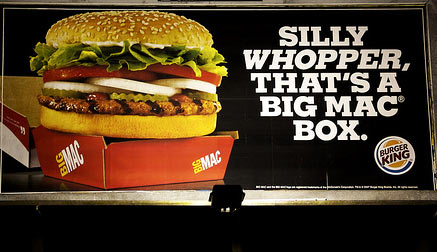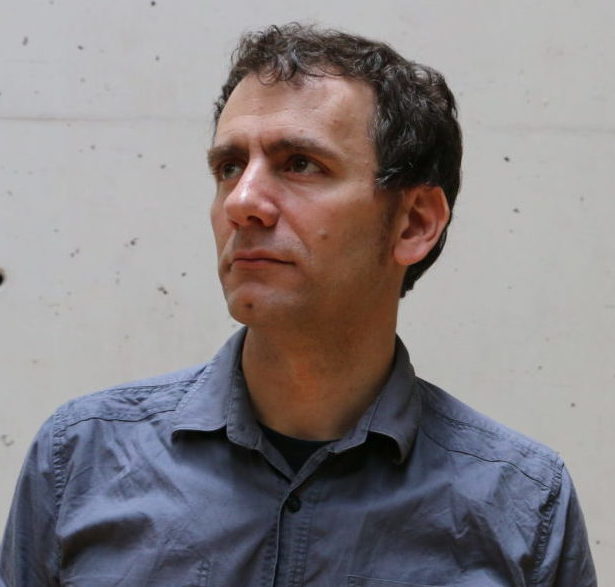Search
To search for an exact match, type the word or phrase you want in quotation marks.
A*DESK has been offering since 2002 contents about criticism and contemporary art. A*DESK has become consolidated thanks to all those who have believed in the project, all those who have followed us, debating, participating and collaborating. Many people have collaborated with A*DESK, and continue to do so. Their efforts, knowledge and belief in the project are what make it grow internationally. At A*DESK we have also generated work for over one hundred professionals in culture, from small collaborations with reviews and classes, to more prolonged and intense collaborations.
At A*DESK we believe in the need for free and universal access to culture and knowledge. We want to carry on being independent, remaining open to more ideas and opinions. If you believe in A*DESK, we need your backing to be able to continue. You can now participate in the project by supporting it. You can choose how much you want to contribute to the project.
You can decide how much you want to bring to the project.

Let’s begin with a fairly gross comparison.
Let’s say that a McDonald’s in Connecticut begins to sell Burger King Whoppers. Inconceivable. The consumer might think that McDonald’s has finally won the battle and almost ironically allows itself to use the product of another brand, and what is more come off lightly. With this gesture McDonald’s and Burger King would shatter the image of the existence of different options and identities within the hamburger market. Burger King, being the small one, presenting itself as something different, would risk a lot more and would evidently end up seriously debilitated. It would be accepted that McDonald’s was a good place for their hamburgers, it would be acceptable to enter into the confines of the other, it would be validating the space as a space that could contain the otherness and, what is more, facilitate the work of McDonald’s, as it would bring to their establishment the recently prepared hamburgers, after years and years of explaining that that they have a distinct twist that makes them something special. Someone in Burger King would be given a serious talking to, be it from the investors or the clients, it doesn’t really matter which.
But lets complicate things a little more: by adding Pizza Hut into the equation. Pizza Hut, that has previously collaborated with Burger King in the joint manufacture of some products disconcerting in the process the hungry consumer.
Lets say that the Guggenheim of Bilbao presents the collection of MACBA. Does this not make anybody’s alarm bells go off? Wasn’t MACBA supposed to be a model for how to work with a different idea of a collection? Wasn’t it supposed to be a museum that generated another type of critical discourse that sought to redefine history? Wasn’t it supposed to be a place of difference? Wasn’t it a place for another type of emotional contact with the works? Wasn’t it a place for criticality? Wasn’t it about the possibility of a public institution, with the responsibility that this implies, in the face of the models based on the hard and fast norms of capitalism? What is the collection of MACBA doing in the Guggenheim of Bilbao? And while we are at it, why the one in Bilbao and not the one in New York? Is nobody thinking in terms of identity? Or even in terms of branding? Is nobody thinking, no, this move can’t be good for the future of MACBA and that the Guggenheim has nothing to lose, on the contrary, it validates its franchise in Bilbao by presenting within its walls the collection of one of the most important public museums in the Iberian peninsula?
But why not complicate things a little more: it turns out that the collection of MACBA is no longer the collection of MACBA as there has been a “merger” with “La Caixa” (now “Obra social” (Welfare Projects), previously “Foundation”, this gesture underlining above all the social, time will tell if this gesture, like many others, persists at the time that the “La Caixa” stops being a building society to become just a straightforward bank, with fewer cultural and social obligations).
And lets not forget the classic: the bank always wins. “La Caixa” has traditionally organised itinerant exhibitions. It had a fantastic collection acquired in the best art fairs and international galleries. The rhythm of purchases has slowed down over the last few years but it still remains a very strong collection of objects and pieces along the fairly evident lines of what a quality private collection should be. This collection is mixed up with that of MACBA. MACBA that had a collection that one could say had an intelligent tendency, where documents and films carried the same conceptual weight as objects and paintings, that investigated new models for what a collection and as such a museum could be. MACBA that is going to work to lend visibility to this “merger”, by occupying its own exhibition spaces as well as looking for other places.
“La Caixa” is in the Guggenheim and wins, given that on an identifying level it is beneficial for them to enter into one of the grand halls of globalised American art. “La Caixa” has a large collection but lacks the glamour of these grand institutions.
That MACBA comes out of the operation well is not at all clear. Even though the three sided meetings will undoubtedly have been productive and wrapped in the intoxicating perfume of power. Economic power and the power of the upper echelons, so, why worry about the critical power that a public institution or an artistic proposal might have, right?
And everything is fairly untouchable as to say anything means taking on three of the most important institutions all at once, institutions that moreover also have control over policies and conform this lovely framework that hovers over reality. So this very interesting form of self-censorship must be covering multiple ears, in the face of the alarm bells that must be ringing. If we don’t even discuss this move, there is really no option to talk about anything. If we don’t comment on it, we accept it. To question and query is also the responsibility of all those who are active within the contemporary art scene.

Director of Index Foundation, Stockholm, exhibition curator and art critic. Yes, after Judith Butler it is possible to be several things at once. He thinks that questions are important and that, sometimes, to ask means to point out.
"A desk is a dangerous place from which to watch the world" (John Le Carré)